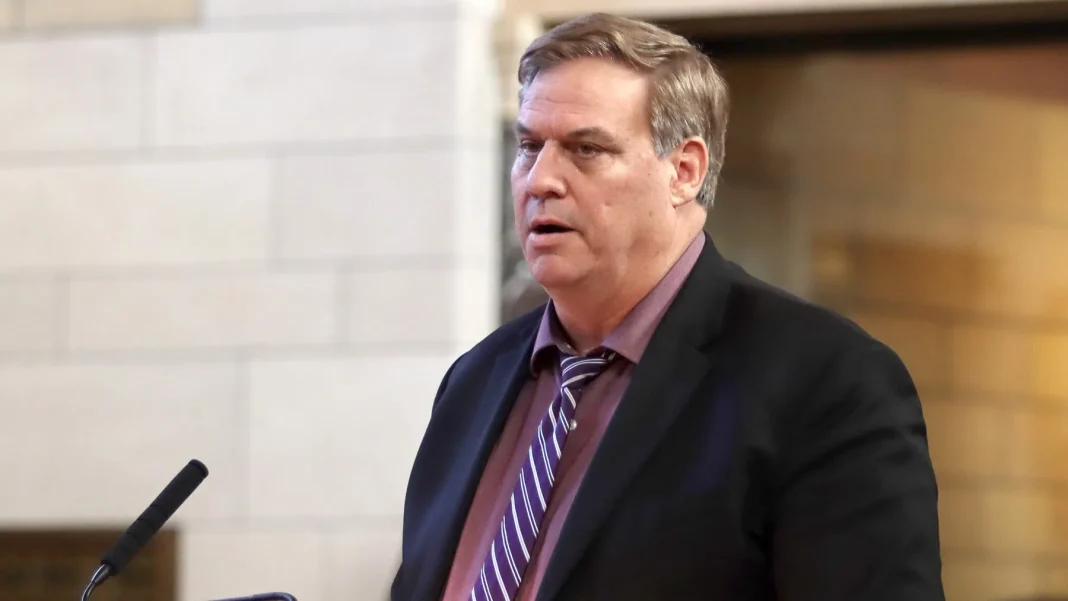Tied Presidential elections are incredibly rare in American history, with Thomas Jefferson and John Quincy Adams being the only two Presidents to win a term to the White House after a tie-breaking vote going their way in the U.S. House of Representatives. With Presidential elections getting tighter and tighter every four years, though, the odds of another tie are as high as ever.
A tie between Donald Trump and Kamala Harris was something the pollsters have been eyeing because of the strength of Donald Trump in the Sun Belt and the recent dominance of Democrats in the Rust Belt. What would create a tie in this scenario would be if Donald Trump were to win all of Nebraska’s five electoral college votes. This would create a 269-269 tie, where Donald Trump wins Nevada, Arizona, Georgia, and North Carolina, and Kamala Harris carries Pennsylvania, Michigan, and Wisconsin.
In that scenario, the election would head to the U.S. House of Representatives where Donald Trump would very likely win a second term in the White House since the GOP controls the White House right now. Unfortunately for Donald Trump, this path to victory has essentially been closed on him.
In Nebraska, Republican state legislator Mike McDonnell has announced that he will not be supporting an initiative to unify the electoral delegates for the state, which would bring Nebraska in line with the rest of the United States. Instead, he wants to keep the current unique situation of Nebraska’s, where each of the districts are given to whoever wins it and the general state population winner gets an additional two votes.
Mike McDonnell announcing that he does not support unifying the voting system of Nebraska to bring it inline with the rest of the nation means that the Republicans do not have the votes to change the law there, and thus Donald Trump will be unlikely to force a tie if Kamala Harris were to win Pennsylvania, Michigan, and Wisconsin.
Mike McDonnell’s office shared a statement that reads, “In recent weeks, a conversation around whether to change how we allocate our electoral college votes has returned to the forefront. I respect that desire of some of my colleagues to have this discussion, and I have taken time to listen carefully to Nebraskans and national leaders on both sides of the issue.”
He adds, “After deep considering, it is clear to me that right now, 43 days from Election Day, is not the moment to make this change.” He goes on to say that he is notifying the Governor of Nebraska that he has made this decision and that maybe the decision can be altered in a non-election year.
Mr. Mike McDonnell was previously a Democrat as recently as April of this year, when he made the change to become a Republican, citing the Democrats’ inability to ‘respect’ his religious beliefs on abortion. Republicans, however, are criticizing this decision, arguing that Nebraska is far overdue to come in line with the rest of the nation.
“There is too much at stake in this election for Nebraskans to spare an electoral vote,” Nebraska state legislator Rob Dover shared with reporters in the media. He added that he wants to see Nebraska vote as a “unified voice” just like Americans everywhere else in the country.
Donald Trump also criticized the decision, questioning the intentions of Mike McDonnell in his decision to vote against this measure. Donald Trump said Mike McDonnell is getting in the way of a “common sense” victory for Nebraskans.
Nebraska Faces Criticism For Being A Black Sheep
Critics of the Nebraskan method of awarding electoral college votes to Presidential candidates say that there should be no state that is the odd one out in the way they handle electoral votes. Nebraska and Maine are the only two states that split their votes.
I'm incredibly disappointed by Senator McDonnell's opposition to Winner Take All.
We should cast our five electoral votes with one voice by switching from a system that dilutes Nebraska's vote to a system that allows us to elect a President for all Nebraskans.
— Pete Ricketts (@PeteRicketts) September 23, 2024
It does seem unfair to many Americans that the voice of their district can be drowned out by the state whole, whereas in Nebraska and Maine that is not the case. There is an argument for the rights of states to decide how to handle elections, but in a national race like President of the United States, most Americans agree the states should be unified in how this is approached.
What’s funny is that the Democrats and the political establishment are praising this Republican Nebraskan legislator’s decision, but they would never want this method brought to states like California. In California, there are plenty of Republican districts who just have their voices drowned out by the rest of the entire state, particularly Los Angeles and San Diego populations that are overwhelmingly Democrat.
The same is true of New York. There are plenty of Republican districts in New York State, but just New York City alone will carry the entire state and its 28 electoral votes for the Democrats. Yet they would never promote the idea of splitting up the districts like Nebraska does.
If the Nebraska method were to be brought to the every state in the nation, Donald Trump would have a huge advantage over Kamala Harris! No longer could Kamala Harris rely on all 54 electoral votes in California. That would be devastating for Democrats.
Of course, since the unification of Nebraska’s electoral votes doesn’t benefit them in this election, they’re railing against it. How predictable.
Do you think it’s fair for some states to drown out districts with a unified vote while others break up the votes by district? Let us know your opinion in the comment section below.

